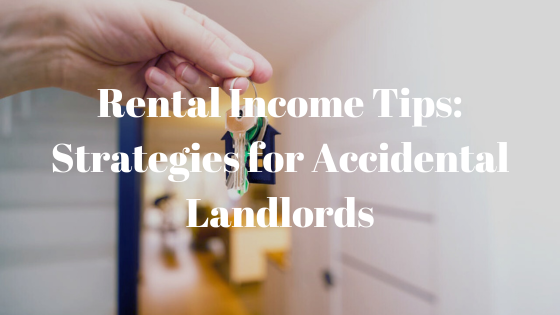21 Terms All Real Estate Investors Should Know
Real estate, just like any other industry, has its own jargon and acronyms. And, as a beginner investor, you may find yourself feeling confused and overwhelmed.
While knowing all the existing real estate investing terms may not be possible, there are basic terms that you should be aware of. Understanding them will make real estate investing easy, as well as make communication effortless and effective.
The following are 21 terms all real estate investors should know.
1. Rental Property
This is arguably the most common real estate term you are bound to come across. So, what is a rental property? Basically, a rental property is a type of property that an owner invests in hoping to make a rental income.
There are two types of rental properties: residential real estate and commercial real estate. Rental properties are governed by the state landlord-tenant laws.
2. Vacation Rental (Short-Term Rentals)
Vacation rentals are short-term rental properties. They are fully-furnished. A common example of a short-term rental is Airbnb. Stays in a vacation rental are governed by rules set out in the Vacation Rental Ordinance.
3. Traditional Rental (Long-Term Rental)
This is the most common type of real estate investment strategy. An investor buys a long-term rental for the purpose of renting it out to tenants for a long period of time – usually 6 to 12 months.
4. Rental Income
This is what the owner gets after renting out their property to a tenant for a certain period of time. Normally, tenants pay for rent on a monthly basis.
5. Equity
Basically, equity is the market value of real property, minus the amount of any liens that may exist. A common example of a lien is a mortgage. For example, if you owe $100,000 on your mortgage loan, and your home is worth $300,000, then the equity in your home is $200,000.
6. Cash Flow
This is the amount of money left after all expenses have been paid.
The following are common rental property expenses:
- Pest control costs
- Maintenance and repair expenses
- Materials and supplies
- Property management fees
- Tenant screening costs
- Marketing and advertising expenses
- Property inspection fees
- Mortgage payments
Cash flow can either be positive or negative. Negative cash flow means that you’re spending more money than you’re earning. On the other hand, positive cash flow means you’re spending less than you’re earning.
7. Lease Agreement
A lease agreement is a contractual agreement between a landlord and a tenant. It outlines the terms and conditions that both parties must abide by in order for a tenancy to hold. It usually runs for a certain period of time – typically one year.
Terminating a lease agreement before its term expires is called breaking a lease.
8. Buyer’s Market
A buyer’s market is one where the supply for properties exceeds the demand. Usually, property prices are low – making it ideal for buyers to make a property purchase.
9. Seller’s Market
A seller’s market is one where the demand for properties exceeds the supply. And with the high demand, property prices tend to be ideal for sellers.
10. Property Appreciation
Property appreciation occurs when the value of a property increases. A number of things can cause a property to appreciate, such as location, cost of borrowing, and demand and supply.
11. Hard Money Loan
Hard money loans are primarily used for real estate transactions. A hard money loan is money from an individual or a company instead of a bank. And like bridge loans, hard money loans are short-term and come with a high interest-rate.
12. Realtor
Realtors are members of the National Association of Realtors (NAR). They act as agents during real estate transactions and must abide by the association’s standards and code of ethics.
13. Real Estate Agent
This is a professional who is licensed to represent buyers or sellers in real estate transactions.
There are 4 major types of real estate agents:
- Listing agent
- Buyer’s agent
- Dual agent
- Transaction agent
14. Real Estate Broker
A real estate broker is a step above a real estate agent. They have more education and training than an agent. They also usually have a broker’s license.
Major types of real estate brokers include:
- Designated real estate brokers
- Managing real estate brokers
- Associate real estate brokers
15. Credit Score
A credit score is a number ranging between 300 and 850 that depicts the creditworthiness of a person. It’s designed to represent your credit risk, or the likelihood you’ll pay your bills on time.
16. Capitalization Rate
To calculate the capitalization rate, one must divide a property’s net operating income by the current market value. It’s used to show the expected rate of return on an investment property.
17. Cash on Cash Return
This is another way an investor can know the expected rate of return on their real estate investments. Cash on cash return is the rate of return ratio. It calculates the total cash earned on the total cash invested.
18. Debt-to-Income Ratio
Debt-to-income ratio (DTI) compares how much you owe each month to how much you earn. In other words, it’s the percentage of your gross monthly income that goes into monthly debt payments.
19. Single Family Home
A single-family home is generally defined as a freestanding residential building built to accommodate one family. A single-family home has its own entrances and exits and has direct access to the street.
20. Multi Family Home
A multi-family home is a single building that is set up to accommodate more than one family living separately. Examples of multi-family homes include townhomes, duplexes, and apartment buildings.
21. Off-Market Property
Simply put, an off-market property is a property that’s not listed on a multiple listing service (MLS). It’s a selling method that’s become increasingly popular across real estate markets.
Bottom Line
The aforementioned terms are only a handful of the terms that you’re bound to come across as a real estate investor.
We hope this article was helpful for you!
If you still need further help, contact Dawson Property Management today!











